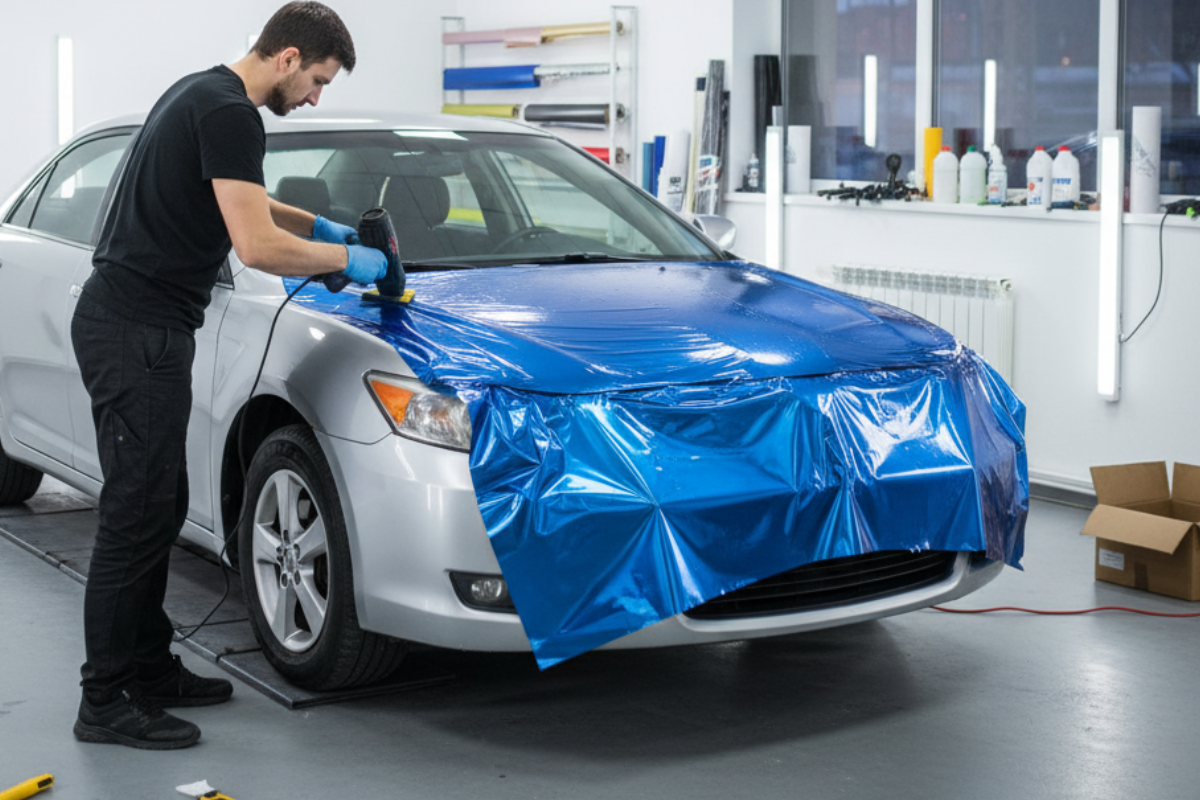What Does It Mean to Wrap a Car: The Basics You Need to Know
The best car wrap service can help you understand what it means to wrap a car and transform your vehicle's appearance. This process involves applying vinyl film to your car's surface for protection and style changes. Car wrapping has become popular among vehicle owners who want to protect their paint or change their car's look. This guide covers the main aspects of car wrapping, from materials to installation. You'll learn about costs, benefits, and maintenance tips for wrapped vehicles.
Car Wrapping: Definition and Purpose
Car wrapping means covering your vehicle's exterior with vinyl material for protection and aesthetics. When you wrap a car, skilled technicians carefully apply the vinyl to create a smooth finish. The vinyl acts like a shield against scratches, small dents, and weather damage. This process also lets you customize your car with different colors and finishes. The vinyl material is strong, flexible, and can be removed without damaging your original paint.
Types of Car Wrap Materials
Three main types of vinyl films are used for car wraps. Cast vinyl works best for curved surfaces and complex shapes because it's highly flexible. Calendared vinyl costs less and works well on flat areas, but it may shrink over time. Specialty vinyl features textured options, including carbon fiber, brushed metal, and satin finishes, for a unique look. Each type has different qualities that affect how well it fits your car and how long it lasts.
Benefits of Wrapping Your Car
Vinyl wraps protect your car's original paint from scratches, UV rays, and fading. This protection helps maintain your vehicle's resale value by keeping the factory paint in good condition. Wraps last for several years with proper care, making them a cost-effective alternative to repainting. You can choose from countless colors, finishes, and designs to create a unique appearance. Wraps also allow you to change your car's look without permanent modifications.
Car Wrap Installation Process
Professional installation starts with thorough cleaning and preparation of your car's surface. Installers measure and cut the vinyl film to fit each panel perfectly. They use specialized tools, such as squeegees and heat guns, to apply the vinyl smoothly without bubbles. Attention to detail during installation significantly impacts the appearance and longevity of the wrap. Proper technique requires skill and experience to handle curves and edges correctly.
Maintaining a Wrapped Car
Regular washing with mild soap and water keeps your wrap looking good and lasting longer. Avoid harsh cleaners or rough brushes that can damage the vinyl surface. Hand drying or using soft cloths prevents water spots from forming. Check your wrap regularly for signs of damage like peeling or lifting edges. Quick repairs prevent small problems from becoming bigger issues that cost more to fix.
Cost Considerations for Car Wrapping
Material costs range from $2 to $5 per square foot for standard vinyl and $6 to $12 for premium options. Labor costs typically range from $50 to $100 per hour, depending on the installer's skill level and the complexity of the job. Additional services, such as custom design work, surface preparation, and detailing, contribute to the total cost. Understanding these factors helps you budget properly for a professional wrap that meets your needs and expectations.
Related Topics:

